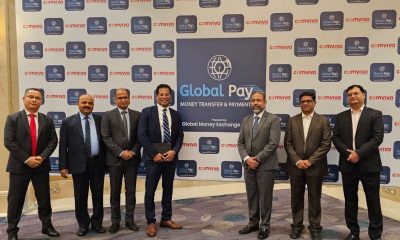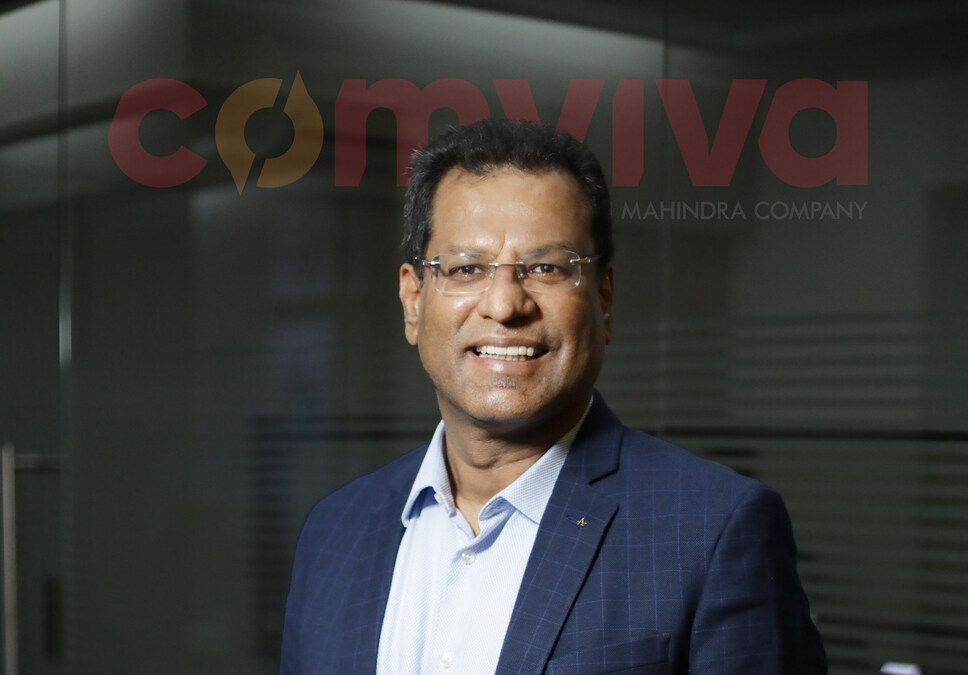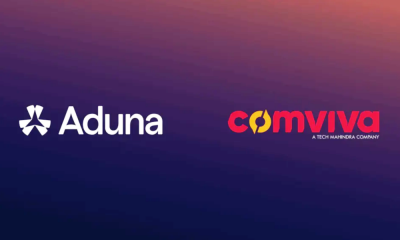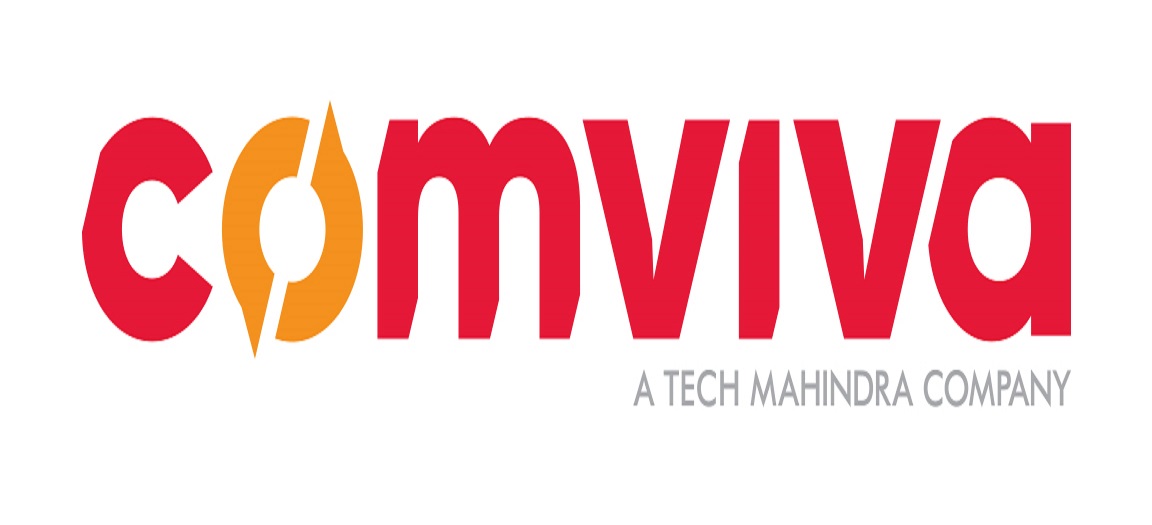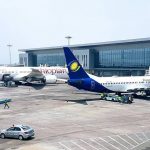Technology
Cassava Fintech, Comviva win 2018 East Africa Com Award
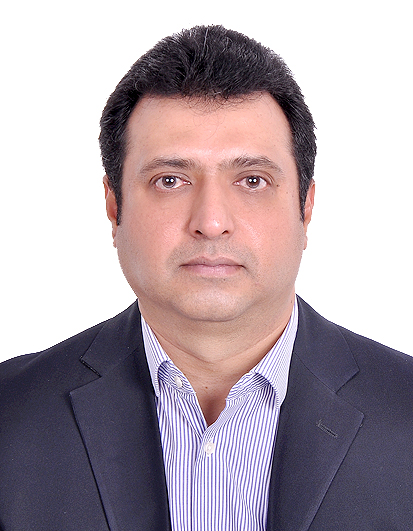
By Dipo Olowookere
Two joint winners have emerged at the inaugural edition of East Africa Com Awards, where six awards were presented recently at Radisson Blu Hotel in Nairobi, Kenya.
East Africa Com Awards celebrate the achievements of the people and companies at the forefront of digital transformation in East Africa. The award recognizes individuals and organizations that have innovated to bring digital disruption and benefit the people of the region.
Cassava Fintech and Comviva won in ‘Fintech Innovation Award’ category for EcoCash Merchant Payments powered by mobiquity® Money.
EcoCash Merchant Payments extends the success of EcoCash beyond money transfer and airtime recharge. It allows EcoCash users to pay at a variety of merchants ranging from supermarkets to small businesses and overcome the cash crunch and change problem prevalent in Zimbabwe.
EcoCash offers multiple options for merchant payments. Customers can pay to merchant by entering merchant code and payment amount in EcoCash app or USSD menu on their mobile phone. Customers can use EcoCash Debit Card to pay at point of sale terminals.
For online payments, customers can use the virtual card. EcoCash has also launched ‘tap and go’ NFC payments with EcoCash ta service, which equips customers with a NFC sticker and merchants with a portable NFC POS device.
All these services have helped to digitize day-to-day payments in Zimbabwe and reduce the dependence on cash.
The impact of EcoCash has been phenomenal – 70 percent of the country’s day-to-day commercial transactions are made through EcoCash, and moving the country one step closer to achieving their goal of being a cashless society.
Commenting on being selected as the winner for the award, Chief Executive Officer of Cassava Fintech Zimbabwe Mr Eddie Chibi, said, “As Cassava we endeavor to operate wherever money changes hands, with an ambition to drive financial inclusion, digital payments and lead the adoption of e-Commerce in Africa.
“We are committed to constantly seeking out new ways to deliver innovative digital transaction solutions which makes it easier and provides convenience to our customers in a manner which solves their real life problems in a meaningful way.
“The scale to which our merchant payments service has reached is testimony to the fact that technology can be effectively used to help uplift the life of the people. We are humbled and grateful to be the recipient of this award.”
Also commenting, Head of Africa Region at Comviva, Anil Krishnan, noted that, “We believe that fintech solutions that cater to the necessities of the people on the ground have the power to bring financial revolution in Africa. EcoCash in Zimbabwe is one such service which has replaced cash and is helping in alleviating the cash problem.
“With EcoCash Merchant Payments we are proud to be instrumental in accelerating the digital payments growth in Zimbabwe. The award validates our efforts in bringing innovative fintech services to the forefront.”
EcoCash merchant payments are powered by Comviva’s mobiquity® Money platform. mobiquity® Money delivers a host of mobile money services that transforms the way consumers save, borrow, transfer and spend money. It is designed to seamlessly integrate consumer touch points with a wide ecosystem of banks, billers, merchants and third-party payment systems, creating a convergence powered by interoperability.
Apart from delivering convenience to consumers, the solution enables financial service providers to acquire new customers, create long-term loyalty with existing ones, and seize new revenue opportunities to increase their footprint in the market. mobiquity® Money empowers financial service providers to be agile in their markets, with complete focus on the customers. mobiquity® Money has clocked over 60 deployments in more than 45 countries. It powers three of the top 10 deployments globally and processes more than 4 billion transactions every year amounting to over $80 billion annually.
Technology
Nigeria to Buy Two New Communication Satellites to Drive Digital Growth
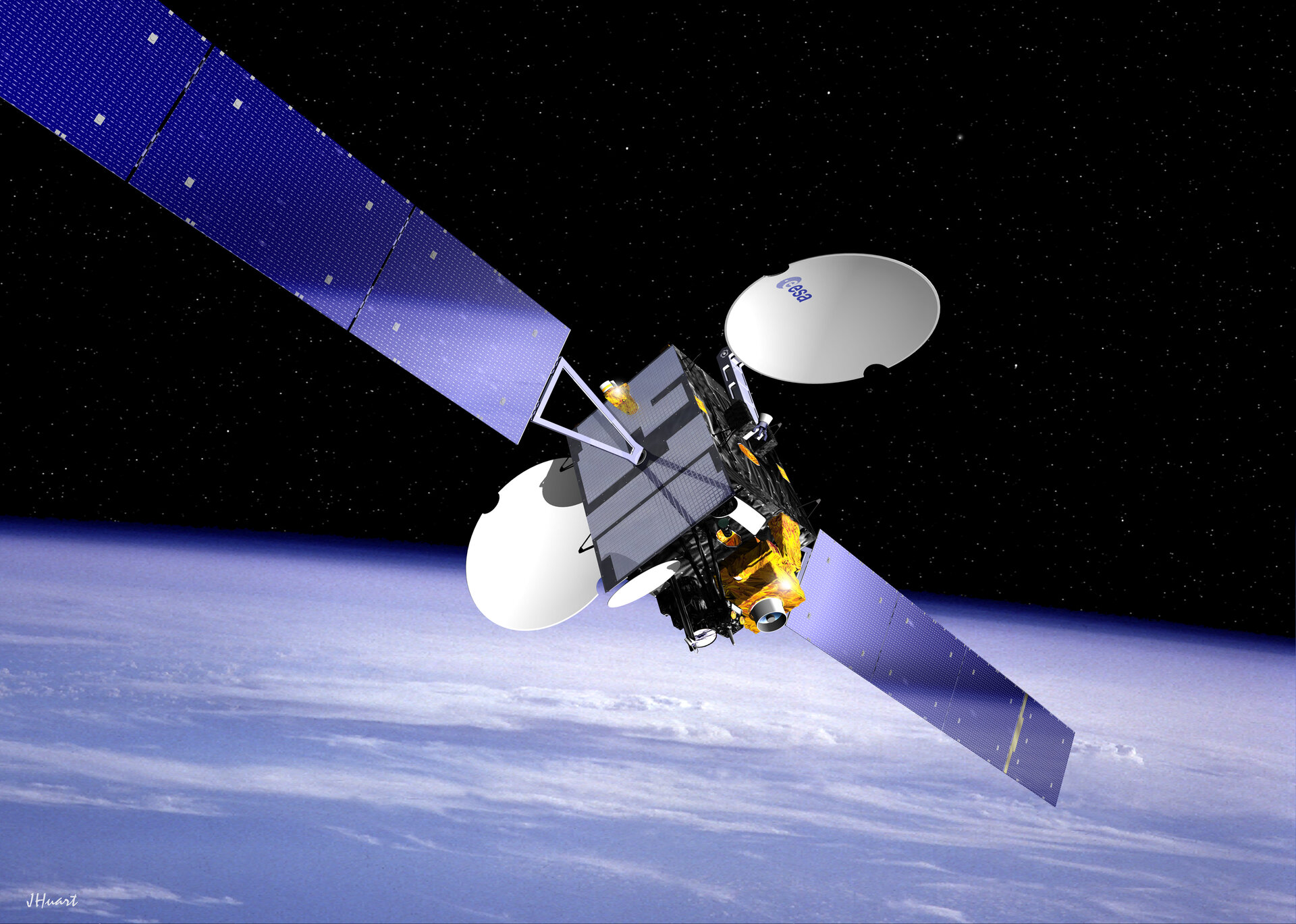
By Adedapo Adesanya
Nigeria will purchase to new communication satellites to boost Nigeria’s digital infrastructure as part of efforts to achieve President Bola Tinubu’s plan to grow the economy to $1 trillion.
The Minister of Communications and Digital Economy, Mr Bosun Tijani, disclosed this on Wednesday in Abuja at a press conference to mark Global Privacy Day 2026, organised by the Nigerian Data Protection Commission (NPDC).
Mr Tijani said the approval marked a significant shift in Nigeria’s digital strategy, noting that the country currently stands out in West Africa for lacking active communication satellites, a gap the new assets are expected to address.
“As you know, Mr President has been very clear about his ambition to build a $1 trillion economy, and digital technology is central to achieving that vision,” adding that, “The President has now approved that we should procure two new satellites. Nigeria today is the only country in West Africa with non-communication satellites. And we have been given the go-ahead to procure two new ones, ensuring that we can use that satellite to connect.”
He also said progress had been made on the Federal Government’s flagship 90,000-kilometre fibre optic backbone project, which is aimed at expanding broadband access across the country. According to the minister, about 60 per cent of the fibre project has been completed, while funding for the remaining work has already been secured.
“The 90,000 kilometres fibre optic project is not a dream. About 60 per cent of the work has already been completed, and the funding for the project is secure. As we bring more Nigerians online, connectivity without protection is incomplete. Privacy is the foundation of trust, safety, and sustainability in the digital world.”
“The success of Nigeria’s digital economy will depend not just on infrastructure and talent, but on trust, and the NDPC remains central to building that trust,” the minister said.
Mr Tijani said the Tinubu administration was positioning digital technology as a key driver of inclusive growth, improved public service delivery, and long-term economic expansion, adding that investments were also being channelled into digital skills, rural connectivity, and institutional reforms.
He stressed that the expansion of connectivity must be matched with stronger data protection, especially as Nigeria’s young and digitally active population continues to grow.
Recall that Nigerian Communications Commission (NCC) recently granted licenses to three global internet service providers – Amazon’s Project Kuiper, BeetleSat-1, and and Germany-based Satelio IoT Services – as part of efforts to strengthen internet connectivity via satellite and to boost competition among existing internet service providers in the country.
Technology
DataPro Predicts Surge in Individual Claims, Constitutional Privacy Actions

By Dipo Olowookere
In 2026, there should be a surge in individual claims and constitutional privacy actions, a leading Data Protection Compliance Organisation (DPCO) in Nigeria, DataPro, has projected.
In a statement signed by its Head of Emerging Services, Ademikun Adeseyoju, the company noted that this means organisations must remain “litigation ready” by preserving processing records and strengthening internal controls.
In the disclosure to prepare for this year’s Privacy Week themed Privacy in the Age of Emerging Technologies: Trust, Ethics, and Innovation, it noted that 2026 would also be defined by board and executive ownership, as privacy will no longer be an IT-only concern but a standing governance issue requiring regular risk reports and dedicated budgets.
“DataPro anticipates intensity on sector-specific enforcement, with the NDPC (Nigeria Data Protection Commission) focusing on high-risk industries like fintech, healthcare, etc,” a part of the statement made available to Business Post on Wednesday said.
Giving a review of key milestones from the 2025 ecosystem, DataPro said the NDPC moved decisively into active enforcement, publicly naming non-compliant entities, particularly in the financial services sector.
It also said the year witnessed landmark court rulings, affirming that transparency in personal data handling is a constitutionally protected right, as courts awarded significant damages to data subjects for privacy breaches, signalling that organisational size no longer shields against accountability.
The firm noted that regulatory settlements with multinational technology firms have set a high bar for behavioural advertising and data processing standards in Nigeria.
In the cybersecurity landscape, the year under review experienced an unprecedented surge in cyber threats, as attackers shifted their focus from technical exploits to identity-driven campaigns, targeting valid credentials with high precision.
“This identity-centric threat environment has made robust access management a non-negotiable requirement for corporate resilience,” it stressed.
As for the 2026 Privacy Week, DataPro has lined up activities, with launch of the Privacy Pulse A year-in-review of Nigeria’s Data Protection Ecosystem on Thursday, January 29.
The next day, a webinar tagged Privacy Pulse to train attendees on the new mandatory bi-annual in-house audits and DPO certification requirements will hold and next Monday, there is an interactive quiz designed to test organizational response to identity-driven cyber campaigns.
A social media session answering complex privacy questions via concise 30-second videos is slated for Tuesday, February 3, and the next day, it is for a social media showcase where winners will be selected for their insights on building Trust, maintaining Ethics in AI, and fostering Innovation under the NDPA.
Technology
MTN Nigeria Suffers 9,218 Fibre Cuts in 2025
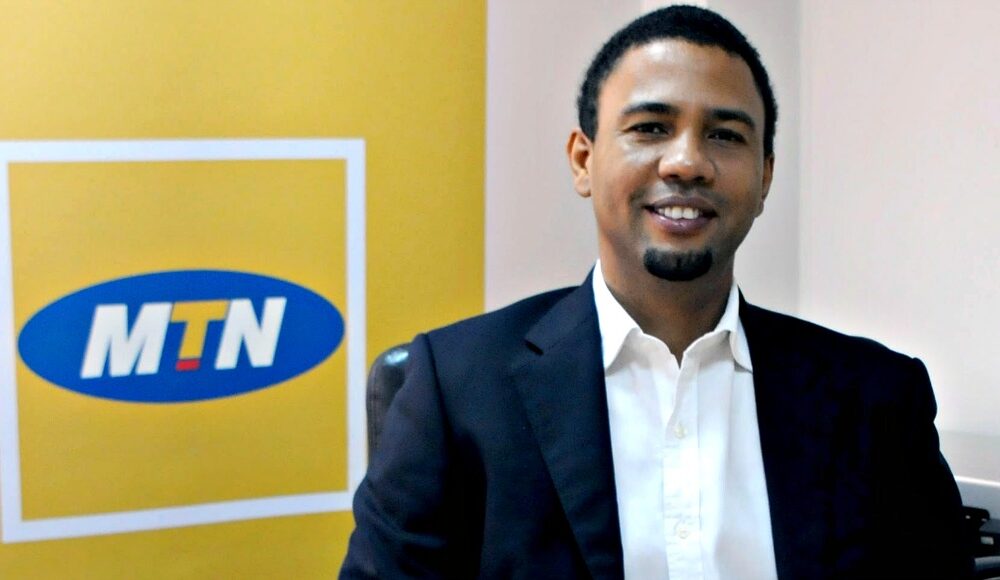
By Adedapo Adesanya
MTN Nigeria has revealed that it experienced 9,218 fibre cuts in 2025, causing widespread network disruptions across the country.
The telecommunications giant also reported that 211 sites were affected by theft and vandalism as of November 30, 2025, impacting essential services relied upon by customers daily.
The company recorded a total of 1,624,263 customer complaints, all of which were resolved across various service channels during the year. Despite these challenges, MTN reached 85 million subscribers by September 2025.
The chief executive of the telco, Mr Karl Toriola, made these revelations in his latest post on LinkedIn, acknowledging the company’s responsibility for network performance and its efforts to improve the customer experience.
He stated that the services fell short of customers’ expectations and clarified that some of these gaps were shaped by real operational challenges such as fibre cuts, theft, and vandalism.
“Their impact is felt directly by customers and reflected in what they tell us. We take responsibility for the signals we receive and for how we respond to the realities that shape the customer experience on our network,” he said.
Regardless, Mr Toriola added that, “There is progress to be proud of. And we clearly still have work to do.”
“We are not where we want to be yet, but our commitment to putting the customer at the centre of everything we do remains constant.”
As MTN prepares to celebrate its 25th anniversary in 2026, Mr Toriola reaffirmed the company’s dedication to listening to customers, responding quickly to issues, and driving consistent service improvements.
Some other milestones announced include addressing 1,624,263 customer complaints across all communication channels as well as receiving best network recognition from Ookla, getting back to profitability, and declaring interim dividends to shareholders.
The report comes in the wake of a February 2025 initiative by the Federal Ministry of Works and the Federal Ministry of Communications, Innovation, and Digital Economy, which established a joint standing committee on the protection of fibre optic cables in Nigeria.
-

 Feature/OPED6 years ago
Feature/OPED6 years agoDavos was Different this year
-
Travel/Tourism9 years ago
Lagos Seals Western Lodge Hotel In Ikorodu
-

 Showbiz3 years ago
Showbiz3 years agoEstranged Lover Releases Videos of Empress Njamah Bathing
-

 Banking8 years ago
Banking8 years agoSort Codes of GTBank Branches in Nigeria
-

 Economy3 years ago
Economy3 years agoSubsidy Removal: CNG at N130 Per Litre Cheaper Than Petrol—IPMAN
-

 Banking3 years ago
Banking3 years agoSort Codes of UBA Branches in Nigeria
-

 Banking3 years ago
Banking3 years agoFirst Bank Announces Planned Downtime
-

 Sports3 years ago
Sports3 years agoHighest Paid Nigerian Footballer – How Much Do Nigerian Footballers Earn


